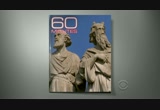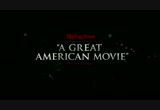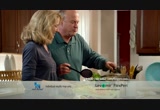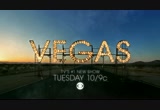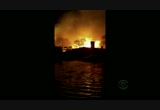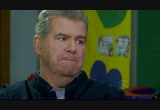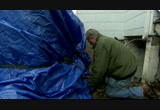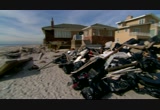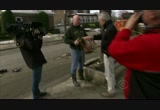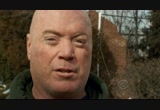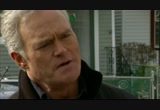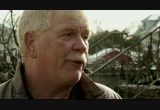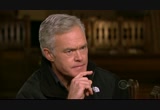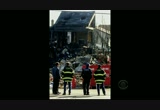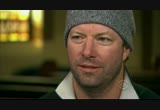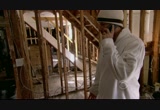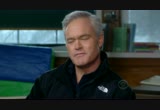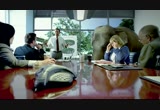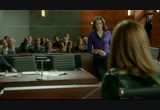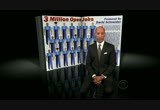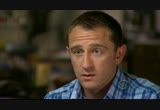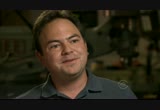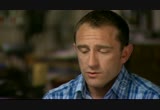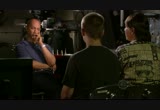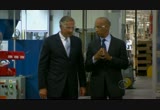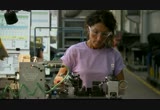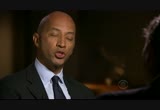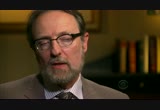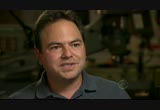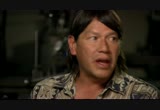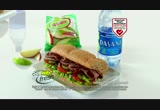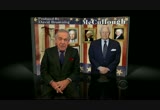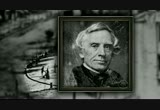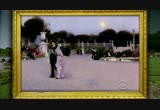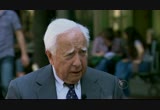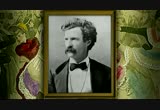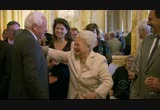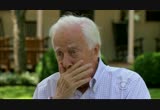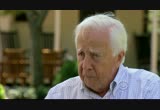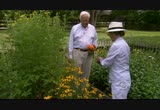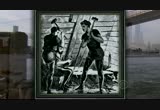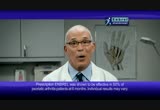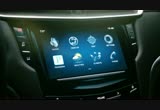tv 60 Minutes CBS November 11, 2012 7:00pm-8:00pm PST
7:00 pm
captioning funded by cbs and ford-- built for the road ahead. captured on a phone when many in belle harbor thought fate would take their town. >> we were terrified when the fire started. we watched the houses on next block go up one after another. the fire department couldn't get here because the water was so high. >> pelly: the water was six feet high at susan brady's porch when her son shot this, the neighborhood squeezed into a narrow space between drowning and burning. >> safer: so you're hiring? >> we're hiring. we're hiring and we need to find good people. >> safer: surprised to hear that? we were, but it turns out there are more than three million open jobs in the u.s. right now with
7:01 pm
as many as 500,000 of those in manufacturing. employers complain they can't qualified, skilled workers. how is that possible in this economy? that's our story tonight. >> come along with david mccullough when he goes along on our journey to paris before independence, a time of a new generation. >> they came here in order to improve themselves and to thereby improve their country. >> as for this generation of americans, america's favorite historian is less than enthusiastic. >> we are raising children in america today who by in large historically are ill it illiter. >> i'm steve kroft. >> i'm lesley stahl. >> i'm morley safer. >> i'm lara logan. >> i'm byron pitts.
7:02 pm
>> i'm scott pelley. those stories tonight on "60 minutes." that was me... the day i learned i had to start insulin for my type 2 diabetes. me... thinking my only option was the vial and syringe dad used. and me... discovering once-daily levemir® flexpen. flexpen® is prefilled. doesn't need refrigeration for up to 42 days. no drawing from a vial. dial the exact dose. inject by pushing a button. flexpen® is insulin delivery...
7:03 pm
my way. levemir® (insulin detemir [rdna origin] injection) is a long-acting insulin used to control high blood sugar in adults and children with diabetes and is not recommended to treat diabetic ketoacidosis. do not use levemir® if you are allergic to any of its ingredients. the most common side effect is low blood sugar, which may cause symptoms such as sweating, shakiness, confusion, and headache. severe low blood sugar can be serious and life threatening. ask your healthcare provider about alcohol use, operating machinery, or driving. other possible side effects include injection site reactions. tell your healthcare provider about all medicines you take and all of your medical conditions. get medical help right away if you experience serious allergic reactions, such as body rash, trouble with breathing, fast heartbeat, or sweating. with flexpen®... say good night to vial and syringe. ask your doctor about levemir® flexpen. covered by 90% of insurance plans, including medicare. find your co-pay at myflexpen.com. can you help me with something? nope! good talk.
7:04 pm
[ male announcer ] or free windows 8 training when you buy a computer at staples. another way staples makes it easier to upgrade. with the fidelity stock screener, you can try strategies from independent experts and see what criteria they use. such as a 5% yield on dividend-paying stocks. then you can customize the strategies and narrow down to exactly those stocks you want to follow. i'm mark allen of fidelity investments. the expert strategies feature is one more innovative reason
7:05 pm
serious investors are choosing fidelity. now get 200 free trades when you open an account. >> pelley: this past week, snow began to fall on the shoulders of people struggling to get back up after hurricane sandy. two weeks after the storm, many thousands are still out of their homes and thousands more have no power. a long stretch of the east coast looks like it lost a war. one place still in the dark and the cold is the new york city neighborhood of belle harbor. it's a community of only a few thousand, but it has seen much
7:06 pm
more than its share of tragedy. a lot of its residents are cops and firemen, and many were lost on 9/11. then two months later, in 2001, a jumbo jet crashed into the community. now, the storm has swept away a great deal of belle harbor, but it did not take way the grit of the people who always reach out for one another. this was the moment, captured on a phone, when many in belle harbor thought fate would finally take their town. >> susan brady: we were terrified when the fire started, because we watched the houses on the next block go up one after another, and the fire department couldn't get here because the water was so high. >> pelley: the water was six feet high at susan brady's porch when her son shot this video, the moment the neighborhood was squeezed into a narrow space between drowning and burning. >> brian brady: the water was breaking on the back deck.
7:07 pm
it was coming through the basement windows, the garage. the kitchen window shattered in the height of the storm, and we were in a bad place. >> pelley: the bradys are an irish-american family typical for belle harbor. jimmy and brian are new york city firefighters. patrick is applying to join the fire department. the night of the storm, the brady's did not evacuate, but dennis was away on a trip to florida. i can't imagine anything worse than being 1,000 miles from here, and have your wife on the phone telling you that the house is flooded and the fire's coming. >> dennis brady: i couldn't wait to get in the car. i just could... >> pelley: what did you do? >> dennis brady: i ran to the store and got everything i could-- generators and water pumps, and i just told the guy, "stuff the car with everything you got in this place and put it in there. here's my credit card." >> pelley: maxed out the credit card?
7:08 pm
>> dennis brady: i called american express and i told them, "do what you have to do, but this stuff is going on the card." >> pelley: how long did it take you to drive here? >> dennis brady: 19, 20 hours. you know, i stopped for gas and just kept going. >> pelley: straight through? >> dennis brady: straight through. >> pelley: and when you got here, what did you see? >> dennis brady: devastation. total devastation. >> pelley: dennis maxed his card on more pumps, generators and supplies than he could use because he knew someone would need them. it didn't matter who-- the houses in his neighborhood have been in the same families for three and four generations. who lives here? what kind of neighborhood is it? >> susan brady: this is three fs-- family, friends, and faith. everybody cares about each other. >> dennis brady: i live in new york city. i don't have a key to my front door and my door is never locked.
7:09 pm
and if it is, i couldn't get into it because i don't have a key. >> pelley: this isn't the place people think of when they think of new york city. >> dennis brady: exactly. >> pelley: belle harbor is down there below manhattan, in queens, on a strip of sand called the rockaway peninsula. the atlantic is to the south. jamaica bay, to the north, separates what they call the rockaways from the island of manhattan. after 1900, it was a beach resort. but over the years, it settled into what were neat rows of middle class homes. the streets are piled high with sand now. the main drag has been knocked out of business. but a neighborhood is made of people, and here, they take care of their own. during the storm, mike mcdonnell sheltered in a house with his neighbors when the tidal surge began filling the street. >> mike mcdonnell: the windows blew in. you'll hear "pop, pop, pop, pop." and all the water came rushing in. it came right up the stairwell. i said i'm going to the front of the house to see how much tide is still going to rise.
7:10 pm
at that moment, a gas line blew. and there were... there were embers of flames pouring over the house, the equal to that of a snow globe, if you shake a snow globe and you see all the white coming down. but this was raining fire. >> pelley: when the house burst into flame, mcdonnell wanted to lead everyone through the tide to a house across the street. he's not the kind who gives up easily. he's had 60 surgeries for skin cancer. mcdonnell found that he didn't have a rope for the rescue, so he made one. extension cords and twine and lamp cords. so the rope led from where to where? >> mcdonnell: the rope here went from the banister over to the tree here. >> pelley: right there where it's tied to the tree is how high the water was. mcdonnell showed us how a neighbor on a surfboard tied the other end across the street. mcdonnell used this lifeline as
7:11 pm
he carried six people, one at a time. >> mcdonnell: i tell you, first of all, we're being chased by fire. and then the other alternative is to jump into raging water that looked like tsunami waters. >> pelley: not good options. >> mcdonnell: this whole thing was fueled by noting more than hope and trust. >> pelley: why was this your job? >> mcdonnell: because i promised them that nothing would happen to them. there's something great about this community. everyone in this community, they're all first responders, they're firemen, they're police officers. rockaway has a great fabric running through it, through everybody here, where they don't mind putting their lives on the line if there's a possibility to save another. >> pelley: as the fire approached the next block, kenny dean, who works for the bomb squad at the nypd, and his wife liz decided to mak a break for it with their kids, using their own rope that kenny tied loops in to hold their 12-year-old boy and girls nine and seven.
7:12 pm
>> liz dean: kenny stood here on the porch, and as the children came out, he said, "you put your wrist in the loop and you hold on." and then they had their swim kickboard, and they went like this and, one by one, they jumped straight off the porch into the water. >> pelley: brave kids. >> liz dean: very. >> pelley: you had hesitation, didn't you? you... you were... >> liz dean: when i stepped off the porch, i just said, "oh, my god. i can't believe this is happening to myself. protect us, god." and really, my fear was losing one of the children, not being able to see them. >> pelley: so jumping into the flood seemed like the best option you had. >> liz dean: right, with floating debris, pieces of boardwalk. the water was deep enough for one of my children to ask, "mommy, are there sharks in the water?" >> pelley: sharks? >> liz dean: sharks. and i said, no, of course. they quietly continued. they were very quiet. >> pelley: jim o'conner could see the fire consuming his neighborhood. >> jim o'conner: my wife likened it to the "titanic" meets "gone with the wind" when atlanta was burning. >> pelley: when flames hit this
7:13 pm
house across the street, he jumped in the water to help three women escape, holding a three-month-old over his head. they all took refuge with a neighbor until dawn. >> o'conner: when the water went down and it was just getting day out, we came over here and we turned our corner, not knowing if we had a house not standing. and there it was. it was still there. >> pelley: but a lot of tragedy here? >> o'conner: well, the only thing we haven't got now is the locusts and the frogs, i think, over here. that's about it. >> and my friends, let us pray. >> pelley: after the plague of sandy, mass at st. frances de sales is said in the chill, lit by stained glass and candles, not unlike when the book of exodus was written. no telling when power is coming back. but the st. francis gym has filled with coats and food and supplies sent to the rockaway peninsula from just about everywhere. >> sean heeren: people from
7:14 pm
rockaway, we're just very... we live by the ocean and we respect it, but we don't we don't fear it really. >> pelley: we sat down at st. francis with fireman sean heeren and james brennan, childhood friends who'd seen their town survive before and didn't imagine losing it to the sea they love. >> heeren: you know, i had my wife, my... my sister, and my sister-in-law with four young children. and it was, by far, the scariest night of my life. god forbid, if i did have to get them all out of the house, you know, how was i going to do it? and luckily, i didn't have to. so... but, you know, i think my brother was watching down on me. >> pelley: your brother was watching down on you. tell me about your brother. >> heeren: he got killed in 9/11, and you know, was a great kid, very well-liked, hard worker, just a great kid >> pelley: his brother was charlie heeren, a bond trader at the world trade center.
7:15 pm
belle harbor lost ten people that day, five of them firemen. and among those grieving was charlie heeren's best friend, chris lawler who, himself, had only two months to live. in november, an american airlines jet got into trouble leaving kennedy airport and nosed straight into belle harbor. 260 were killed on the plane; five, including chris lawler, died on the ground. the plane crash in 2001 happened just beyond that yellow house there on the very next block. and so, here it is in the same neighborhood that more than a dozen houses burned down during hurricane sandy. and three people were killed here in belle harbor. one woman bled to death when she was cut by flying glass, and two men drowned in their basements. those deaths would have been mourned here at the harbor light pub, the place for first dates,
7:16 pm
wedding receptions, and irish wakes. it was here 32 years, owned by a man who lost a son and now a business, sean heeren's dad. your dad's restaurant, the harbor light, is really the center of this community, it seems, for most people. >> herren: a lot of good times. if those walls could talk, you know, a lot of good times. it became a place where everybody could go, almost like a cheers, you know. >> james brennan: i'm in the restaurant business now, and my first job was as an 11-year-old bus boy at the harbor light, which i got fired from, and then i got rehired as a dishwasher. >> pelley: the homes they knew were ruined by the sea. the houses of belle harbor are turned inside out-- the debris out front, same as the next house and the next and on down the street. out where the kids play, the navy landed engineers and equipment.
7:17 pm
when the military hits the beach, you know there's a lot of work to do. for a few, these are signs that it's time to go, at least for a while. >> we'll get the o'gradys in this one and the murphys in this one. >> pelley: we met five moms and 15 kids going to san diego for the next few weeks, so the kids can get in school, and dads, left behind, can fix the houses. >> love you, buddy. >> pelley: james brennan, who we met in the church, organized this trip. he turned his busboy experience into a chain of restaurants in california. after the storm, he came back. and now, he's raising money to get debris cleaned out and get electricity and heat back in. as for the brady boys, they're helping out on the main drag to get the businesses open. and the rest of the time, they're tearing out what was lost in their own home. do you think of yourselves as victims of the hurricane? >> bradys: no. no.
7:18 pm
>> pelley: how could you not? >> dennis brady: we're alive. we're here together. >> patrick brady: we're the lucky ones. >> pelley: you said you're the lucky ones? >> patrick brady: yeah. absolutely. >> pelley: i think most people walking around this neighborhood wouldn't think of you as being too lucky. >> patrick brady: if you walk around the block, you'd say so. there's houses completely burned to the ground. and our house is still standing. all we do is gut our basement. >> james brennan: you know, just things, and that's it. the big thing is that everybody is safe. the neighborhood is still here. the people are still here >> pelley: just things? the... the neighborhood is wrecked. it's freezing outside. nobody's had heat in a week. >> james brennan: it brought us together. it brought countless other families together. it brought our neighborhood together. people have flown in from all over the world, from all over the country that are from here, that have families here to help. it's brought everybody back and grounded again. >> pelley: the people of belle harbor reminded us of what churchill said, "when going through hell, keep going." with every setback, that is what they've done, not pausing for help or waiting for
7:19 pm
instructions. they have seen the likes of this before, and they know the promise that lies beyond it. for information on how to help the families of belle harbor, as well as others affected by hurricane sandy, please go to 60minutes.com. >> cbs money watch update sponsored by: >> glor: good evening. president obama and top lawmakers hold budget talks this week aimedded at avoiding the so-called fiscal cliff. gas prices fell four sentence to $3.43 a gallon. and it's the biggest bond opening weekend ever. "skyfall" won the weekend box office. i'm jeff glor, cbs news. last thanksgiving, about 2 million people
7:21 pm
at christmas, there was a lot of driving over the river and through the woods. and a little bit of skidding on the ice and taking out grandma's garage door. so while you're celebrating, allstate will be standing by. trouble never takes a holiday. neither should your insurance. that's allstate's stand. are you in good hands? ♪ spending the day with my niece. i don't use super poligrip for hold because my dentures fit well.
7:22 pm
before those little pieces would get in between my dentures and my gum and it was uncomfortable. even well-fitting dentures let in food particles. super poligrip is zinc free. with just a few dabs, it's clinically proven to seal out more food particles so you're more comfortable and confident while you eat. so it's not about keeping my dentures in, it's about keeping the food particles out. [ charlie ] try zinc free super poligrip.
7:23 pm
>> pitts: the balance of power in washington didn't change this week as president obama and most members of congress kept their jobs. they'll go back to work and face an unemployment problem that also hasn't changed very much. every month since january 2009, more than 20 million americans have been either out of work or underemployed. yet despite that staggering number, there are more than three million job openings in the u.s. just in manufacturing, there are as many as 500,000 jobs that aren't being filled because employers say they can't find qualified workers. it's called "the skills gap." how could that be, we wondered, at a time like this with so many people out of work? no place is the question more pressing than in nevada, the state with the highest unemployment rate in the country, a place where there are jobs waiting to be filled. >> karl hutter: yeah, we hear way too much about the united states manufacturing, "we don't manufacture anything anymore." not true. not true. >> pitts: sure, it's mexico, it's in china... >> hutter: yeah, yeah, that...
7:24 pm
that all went to china, that all went to mexico. not true whatsoever. >> pitts: karl hutter is the new chief operating officer of click bond in carson city, nevada, a company his parents started in 1969. >> hutter: we're still technically a small business, but we're growing quickly. >> pitts: so you're hiring? >> hutter: we are hiring. we're hiring and we need to find good people. and that's really what the challenge is these days. >> pitts: 325 people work at click bond, making fasteners that hold cables, panels and pretty much everything else inside today's planes, ships and trains. their customers include the defense department. the f-35 has 30,000 click bond fasteners. the workhorses in this factory may look old, but they're computer-controlled machines that make precision parts accurate to a thousandth of an inch, the thickness of a piece of paper. click bond needs employees who can program the computers, operate the machines, fix them, and then check to make sure the results are up to spec. >> ryan costello: if you look at the real significant human achievements in this country, a lot of them have to do with
7:25 pm
manufacturing or making something. >> pitts: ryan costello is head of strategic initiatives at click bond. that's another way of saying he's looking ahead to both opportunities and problems facing the company. sure. so the... the skill gap, is... is it across the board? is it at all levels, or is it the entry level? >> costello: i would honestly say it's probably an entry level problem. it's those basic skill sets. show up on time, you know, read, write, do math, problem solve. i can't tell you how many people even coming out of higher ed with degrees who can't put a sentence together without a major grammatical error. it's a problem. if you can't do the resume properly to get the job, you can't come work for us. we're in the business of making fasteners that hold systems together that protect people in the air when they're flying. we're in the business of perfection. >> pitts: costello says click bond ran into trouble when it expanded production and went to buy these machines from a factory in watertown, connecticut.
7:26 pm
the company didn't have enough skilled labor back home in nevada to run them, so it bought the entire factory just to get the qualified employees, and kept the plant running in connecticut. >> you just have to be careful that you don't hit the side. >> pitts: nationwide, manufacturers say the lack of skilled workers is the reason for hundreds of thousands of unfilled jobs, a number ryan costello says is about to get bigger. >> costello: you have a massive wave of baby boomers who are leaving the workforce very soon. >> pitts: folks retiring. >> costello: and we have to replace those folks. and that's not even talking about growth. >> hutter: we can't find enough students who are interested in pursuing these trades. because it seems hard? i don't know. because it seems like you have to do math? i don't know. >> pitts: do you think you've done an effective job looking for them? >> hutter: i think we have. i think we really have. >> pitts: how is that possible in this day and age, when so many people are looking for work, need work, and... and you're telling me you can't find people who have the skills to do the job that you need done? >> hutter: and that's the thing that seems like a stumper,
7:27 pm
right? of all times, you should be able to find them now. >> pitts: in the five years before the recession, nevada had the fastest growing job market in the country. but when the bottom fell out of tourism, real estate and construction, it went from best to worst. in 2010, the unemployment rate here shot to 14.9%, highest in the country. and today, nevada is still struggling with a jobless rate well above the national average. ryan costello says, with so many people unemployed, manufacturers must play a larger role in training workers. >> costello: i think far too long we've had our heads in the sand, you know. we make our parts. we just hoped that the education system would produce what we need. and i think the recession, i think a lot of things have taught us, "no, you have to engage." >> pitts: so last year, costello convinced other manufacturers to design a training program with local community colleges. the plan was straightforward-- take unemployed people, test them for aptitude, interview them for attitude, and then train them for open jobs. >> grab the tool, hit the button to release the tool. >> pitts: the 20 handpicked
7:28 pm
students have different ages, backgrounds and work experience. for them, the training is free and they can still collect unemployment. ryan vrenon gets to school an hour early for a study group. >> ryan vrenon: so you've got three to the five right here, so it's .02. >> pitts: he's been working in warehouses and fast food, but mostly not working at all. >> pitts: how many jobs have you applied for in the past four years? >> vrenon: i would say, in the last year, that i've worked... i applied for over 200 jobs. >> pitts: really? >> vrenon: 200 jobs. >> pitts: and how many callbacks did you get? >> vrenon: two. >> pitts: jamie pacheco is married with two young girls and a child on the way. he was a commercial painter, but those jobs dried up with the downturn in construction. >> jamie pacheco: i like the fact that i have to put my brain to work to... to be able to apply myself to do this kind of stuff. >> pitts: the program focuses on the machines found in today's factories. students are taught to operate
7:29 pm
the computers, read blueprints, and learn trigonometry to make precise measurements-- almost a year's worth of training packed into 16 weeks. most of the students here will start at jobs paying $12 an hour. skilled machinists can earn upwards of $60,000 a year. for ryan vrenon, with a wife and a newborn, it's exactly the kind of job he was hoping for. >> vrenon: to get the call to actually be accepted into the class was... right when i hung up the phone, i was just like, "yes!" >> pitts: what did your wife say? >> vrenon: "oh, my god, baby," you know? ( laughs ) "you're going to go to college." it's just like, wow! >> pitts: life-changing, it sounds like. >> vrenon: yeah, very. very life-changing. my... my whole day is going to be different now. >> pitts: different how? >> vrenon: i don't have to wake up and go, "what am i going to do now?" you know? "okay, i fed everybody yesterday, but i don't have enough money to feed people today." or "i don't know where to step next, you know. what's my next move?" >> pitts: click bond is having trouble finding entry level employees.
7:30 pm
for manufacturing giants like alcoa, the challenge is retraining people already on the job to keep up with advances in technology. alcoa is one of the largest and oldest companies in america. it's been hiring skilled workers since 1888, and today has factories around the globe. at its aerospace plant in whitehall, michigan, 2,100 employees are working three shifts a day, seven days a week. german-born c.e.o. klaus kleinfeld says alcoa's competitive edge is innovation, backed up by a skilled workforce. they're producing parts that make jet engines 50% more fuel efficient. >> klaus kleinfeld: i would love to show you how the air flow goes inside. but that's part of probably the best-kept secret that this industry has. that's the innovation i'm talking about. >> pitts: and a person just can't walk off the street and put that together for you. >> kleinfeld: impossible. >> pitts: kari belanger came to alcoa with an engineering degree.
7:31 pm
the company trained her to program robots to do the work that, 50 years ago, was done by hand. alcoa also helped pay for rod coley to go back to school and get his engineering degree. he x-rays parts to make sure they're perfect before they leave the factory. what do you say to friends and relatives who may be looking for a job? >> rod coley: well, me... me personally, i say, "get your education." >> kleinfeld: the environment is changing all the time. and if you don't stay on top of things, you know, somebody will eat your lunch. >> pitts: despite its efforts to retrain and recruit, alcoa has 27 job openings at its michigan plant alone. who do you blame for the skills gap in this country? >> kleinfeld: i don't blame anybody for that. >> pitts: who bears responsibility for you? >> kleinfeld: i think it's more an educational aspect. it's... i think it's a sensitivity to understand what makes a country and a business competitive. >> pitts: i would imagine if you had a parts gap, you'd close it right away, right? >> kleinfeld: if we had a parts gap, we'd try to close it right
7:32 pm
away, yes. >> pitts: then why can't that occur with the skills gap? >> kleinfeld: don't get from this that we're sitting together here because our... because alcoa is complaining that we can't fill the skills gap. that is absolutely not my message. we can absolutely fill that, absolutely. i mean, the... for alcoa, we can do it. we are doing it. and many of my colleagues or other c.e.o.s are doing it. >> pitts: but if manufacturing is doing all that it can to close this skills gap, then why is there still a skills gap? >> kleinfeld: well, this is not a society where you can tell somebody what... where to go work, or where to... what education to get, right? >> pitts: do you think if manufacturing paid more, could that be part of the issue, part of the equation? >> kleinfeld: i don't think that manufacturing is not paying well. in fact, i think manufacturing... manufacturing is paying very, very well. >> pitts: peter cappelli disagrees. >> peter cappelli: this is a market. and so, you know, if you're not willing to pay more, don't expect to get better quality people. >> pitts: cappelli teaches management at the university of pennsylvania's wharton school. he says, with supply and demand, a shortage of skilled workers should lead to rising wages.
7:33 pm
>> cappelli: one of the things we know now is wages are not going up. in fact, they've been stagnant, and some cases even declining over time. so where is the shortage? >> pitts: what's changed in the way that american companies hire workers compared to a few decades ago? >> cappelli: i think there are big changes, and i think this is the heart of what is new. what's new now is that employers are not expecting to hire and train people. if you turn the clock back a generation ago, there really was none of this discussion about skill gaps and skill problems. >> pitts: because companies provided the training. >> cappelli: companies did it themselves. companies are now saying, for all kinds of reasons, "we're not going to do it anymore." and maybe they're right, they can't do it. but what they probably can't do is say, "we're not going to do it and it's your problem. it's your problem to provide us with what we need, mr. and mrs. taxpayer. you need to pay for this for us." >> pitts: taxpayers are paying for training in nevada, where it costs about $60,000 to prepare 20 students for jobs.
7:34 pm
karl hutter from click bond plans on hiring people from the program. if there's something that you want, that you need for your company, then why don't you pay for it? >> hutter: i can't afford to develop every worker that i need from scratch. one, that's not my core competency. i'm... we're not a school, we're a company. we can't do that well. two, we can't afford to do that. if we actually had to do that from scratch, even if we could, the jobs would have to go somewhere else, because it's simply not economically tenable to do that. >> pitts: as part of the training program, hutter and other manufacturers are willing to pay students for two-day-a- week internships. ryan vrenon and jamie pacheco did theirs at click bond. their training, says ryan costello, is paying off. has it saved money? has it saved time? >> costello: well, we have two machine operators who have a ton of potential. they're not requiring major training to make sure that they can do math or problem solve.
7:35 pm
they came ready to work day one. >> pitts: if you'd hired them off the street, how long would it have taken the company to get them up to speed? >> costello: that question was asked to one of our folks on the plant floor and he said, "anywhere from a year to two years. >> pitts: for vrenon and pacheco, it's more than the promise of a job or a career. it means being of value and having a place in society. >> pacheco: it's expensive machinery and it needs to be treated with respect. and you know, i myself would feel very privileged to be sitting in that... in that setting and be happy to be a part of what they're doing. >> pitts: you think you'll have a full-time job when this is over? >> vrenon: yes. i'm almost 100% sure on that. just because i'm... i'm not going to stop. i'm... i am going to keep going until i get this. >> pitts: and he did. at the end of the 16 weeks of training, click bond offered ryan vrenon and jamie pacheco full-time jobs at $12 an hour with benefits.
7:39 pm
7:40 pm
cheers die down or, depending on your politics, the post-election blues set in, we'd like to divert your attention, take you back to a time when this country was just becoming a country. in the second part of our profile of the historian david mccullough which began last week, we go with him to paris, the destination back in the 19th century for a host of young americans eager to learn from what was then the most important city in the world. france was the cradle of the modern idea of democracy, french troops were vital to america's victory in the war of independence, and paris led the world in science, medicine and the arts. and as mccullough has written, the city was irresistible to the new citizens of a new nation. >> david mccullough: they came here in the droves. they were here in order to improve themselves, and to go home and thereby improve their
7:41 pm
country. >> safer: they were the first wave of innocents abroad who began arriving in paris just 50 years after independence-- writers, artists, medical students. >> mccullough: they couldn't quite adjust to how old everything is. when they were looking at notre dame, they were looking at a building that was begun before columbus ever sailed. >> safer: paris had grand boulevards, breathtaking parks, great universities, all the things young america didn't have. was there even an art museum in the united states? >> mccullough: no. no art museum in the united states, none. >> safer: so, in 1830, an artist named samuel morse came to study the treasures of the louvre. his painting of what he saw there is a masterwork. but morse had other talents as well. while in paris, he dreamed up the idea for the telegraph, as revolutionary in its day as the internet is in ours. >> mccullough: he developed not
7:42 pm
only the telegraphic system, but what we call the morse code, which was essential. >> safer: morse later met louis daguerre, the father of photography as we know it. daguerre showed him this picture, a paris street scene from 1836; the first photographic image of a human being, a man getting his boots polished. morse was astonished, and with daguerre's blessing, brought photography to america. >> mccullough: so one man, having spent time here, brought home not only a stunning work of art, an american masterpiece, but the idea for the telegraph and the idea for photography. >> safer: others would bring back new ideas in art, architecture and medicine. in 1871, mary putnam became the first american woman to graduate from medical school in paris.
7:43 pm
artists drew inspiration from the city's magnificent luxembourg gardens, irresistible to anyone with a passion for art, including our tour guide. you got it. 133 years ago, at nearly the same spot, the young american john singer sargent painted the gardens in one of his early masterpieces, a couple out for a stroll at twilight. >> mccullough: there's something magical about this place. i think it's the bridges. i do. there's something about... >> safer: you and your bridges. >> mccullough: ...my bridges. but truly, isn't it wonderful? >> safer: this bridge figures in the story of another american in paris, augustus saint gaudens, a street kid from new york. he was determined to be a sculptor, and scraped together the money to study here. >> mccullough: he got by, barely, almost starving.
7:44 pm
but he got by and he studied, and he progressed rapidly. >> safer: his greatest works are part of the american landscape: abraham lincoln, in chicago... in boston, a memorial to the black soldiers who fought in the union army... and in new york's central park, the famous statue of civil war general william sherman. saint gaudens suffered from periods of depression, and while working on the sherman sculpture in paris, had a recurrence that one day became unbearable. >> mccullough: it was very early in the morning, still not quite light. and what he was going to do was kill himself by jumping off this bridge. >> safer: the pont des arts. >> mccullough: the pont des arts, the "bridge of the arts." and as he got out here, probably about where we're standing, the sun began to rise, and the whole façade of the louvre was lit up, all the bridges. and he said to himself, "i don't want to die.
7:45 pm
i want to live." and he started whistling, and walked back up to the studio happy as can be. it was paris. paris saved his life, literally saved his life. >> safer: we moved on to the sorbonne, paris's ancient university. it changed the lives of many other americans. >> mccullough: charles sumner was here in 1838. and he had come to broaden himself, to become a more civilized human being. >> safer: sumner was a young boston lawyer who found himself studying alongside students from colonial africa. >> mccullough: he saw that they were dressed exactly like the other students. they were treated like everybody else. and he wrote in his journal that night, "i wonder if the way we treat black people at home has more to do with what we've been taught than the natural order of things." and it was... it was an epiphany
7:46 pm
for him. >> safer: sumner went home convinced of the evils of slavery, and became a major voice in the campaign to abolish it. >> mccullough: so you talk about dropping a stone in the pond that sends out ripples. this one young man, one american, studying here at the sorbonne, has that moment, goes home, and that was the effect. >> safer: just about the only 19th century pilgrim with anything negative to say about paris was mark twain, who may or may not have meant it when he said he was shocked, shocked by the can-can dancers. twain would be truly shocked to see paris after dark today. otherwise, 21st century americans find the city, with its art, its history, its cafes and byways, as beguiling as the first wave of americans did. >> mccullough: are you a citizen of paris? >> i am.
7:47 pm
>> mccullough: lucky you. >> safer: mccullough encounters fans everywhere. many of them turned out for a reception in his honor at the residence of the american ambassador to france, charles rivkin, where the author had an unexpected encounter with a very famous admirer. >> mccullough: i just kissed olivia de havilland. >> safer: and for good measure, he did it again. madame de havilland is 96, just about the last great star from hollywood's golden age. she was melanie, the good girl, in "gone with the wind." >> mccullough: how long have you been in paris? and what brought you here? >> olivia de havilland: a frenchman. ( laughter ) >> mccullough: that'll do it. >> de havilland: a frenchman. >> safer: she has lived in paris for half a century, a love affair with the city shared by americans past and present. >> de havilland: you feel that it belongs to you. >> mccullough: absolutely.
7:48 pm
>> de havilland: that's what's so magical about it, that it's yours. >> mccullough: what's the great line, "we'll always have paris?" >> safer: mccullough is the soul of courtliness, but also carries a warning to his audiences about his concern, his alarm, that history and its lessons are being lost to many younger americans. >> mccullough: and those of us who have children and grandchildren... >> safer: saying farewell to paris, he put it bluntly: >> mccullough: we are raising children in america today who are, by and large, historically illiterate. >> safer: the teaching of history has become your hobbyhorse, correct? >> mccullough: yes. >> safer: you calling us historically illiterate. >> mccullough: yes. i feel that very much so. i ran into some students on university campuses who were bright and attractive and likeable. and i was just stunned by how much they didn't know. one young woman at a university in the midwest came up to me after one of my talks and said that, until she heard me speak that morning, she'd never
7:49 pm
understood that the original 13 colonies were all on the east coast. and i thought, "what are we doing that's so wrong, so pathetic?" i tried it again at several other places, colleges and universities-- same thing. now, it's not their fault, it's our fault. and when i say "our fault," i don't mean just the teachers. i mean the parents and grandparents. we have to take part-- the stories around the family dinner table. i say bring back dinner if you want to improve how children get to know history. >> safer: but are the teachers themselves semi-illiterate in history? >> mccullough: well, we need to revamp, seriously revamp, the teaching of the teachers. i don't feel that any professional teacher should major in education. they should major in a subject, know something.
7:50 pm
the best teachers are those who have a gift and the energy and enthusiasm to convey their love for science or history or shakespeare or whatever it is. "show them what you love" is the old adage. and we've all had them, where they can change your life. they can electrify the morning when you come into the classroom. how about some black-eyed susans? >> safer: mccullough is 79 now, mulling some ideas for his next book. he and rosalee, his wife of nearly 60 years, have five children. as newlyweds, they lived in the shadow of the brooklyn bridge. it was the inspiration for his second book, "the great bridge," from 1972, his first best- seller. to mccullough, it's a profound symbol of the american journey. we close with his thoughts on its meaning-- a looming, almost living presence as we talked, behind its back, at brooklyn's river café. you have described this as america's eiffel tower. >> mccullough: yes, indeed.
7:51 pm
if you could pick this bridge up and turn it over, underneath it would say "made in america." >> safer: it has endured for 130 years. and mccullough is still awestruck by the genius and courage of the people who built it. >> mccullough: i look at that and i think, "who were those guys, and how the hell did they do it?" >> safer: remember, this was the 1860s and '70s. workers had to reach bedrock at the bottom of the east river, working 60, 70 feet down in wooden boxes, breathing pumped- in air. >> mccullough: they would send men down through shafts into that space to dig. >> safer: by hand. >> mccullough: by hand, all by hand. >> safer: pick-axes and shovels. >> mccullough: yes. so the temperature down there was unbearable, the air was awful. and the days were long and as arduous as you could imagine. many of them couldn't take it.
7:52 pm
>> safer: mccullough's pantheon of heroes includes washington roebling, who oversaw the bridge's construction, and his father john, a german immigrant who designed it. >> mccullough: he was a new american, he was a very proud american. he wanted to show this is what we can do, we americans. and he certainly did. >> safer: indeed. in fair weather and foul, the bridge looks as sturdy and iconic as anything the country has built. >> mccullough: this is a bridge about motion. ships passing underneath, people walking over the promenade, traffic pouring across 24 hours a day. it's still serving its purpose. >> safer: how many more years do you think it will stand? >> mccullough: oh, forever, if we have a civilization wise enough and appreciative enough to take care of it.
7:53 pm
hi, i'm phil mickelson. i've been fortunate to win on golf's biggest stages. but when joint pain and stiffness from psoriatic arthritis hit, even the smallest things became difficult. i finally understood what serious joint pain is like. i talked to my rheumatologist and he prescribed enbrel. enbrel can help relieve pain, stiffness, and stop joint damage. because enbrel, etanercept, suppresses your immune system, it may lower your ability to fight infections. serious, sometimes fatal events including infections, tuberculosis, lymphoma, other cancers, and nervous system and blood disorders have occurred. before starting enbrel, your doctor should test you for tuberculosis and discuss whether you've been to a region where certain fungal infections are common. don't start enbrel if you have an infection like the flu. tell your doctor if you're prone to infections, have cuts or sores, have had hepatitis b, have been treated for heart failure, or if, while on enbrel, you experience persistent fever,
7:54 pm
bruising, bleeding, or paleness. [ phil ] get back to the things that matter most. ask your rheumatologist if enbrel is right for you. [ doctor ] enbrel, the number one biolog medicine prescribed by rheumatologists. aflac... and major medical? major medical, boyyy, yeah! [ beatboxing ] berr, der berrp... ♪ i help pay the doctor ♪ ain't that enough for you? ♪ there's things major medical doesn't do. aflac! pays cash so we don't have to fret. [ together ] ♪ something families should get ♪ ♪ like a safety net
7:55 pm
7:57 pm
>> pelley: we have post-election updates on two stories: in our story on the medical marijuana industry in colorado, which we called "rocky mountain high," we reported on how medical cannabis has become a regular part of life in that state. well, on tuesday, as if to prove the point, colorado voters passed an amendment to legalize recreational marijuana and regulate it like alcohol. washington state voters approved a similar referendum. as for last week's story on the dysfunctional "broken senate," voters resisted senator tom coburn's best-case scenario that, in his words, "all of us lose." of the 22 incumbents up for reelection, 21 are going back to capitol hill. just one is going home. i'm scott pelley. we'll be back next week with another edition of "60 minutes,"
7:58 pm
325 Views
IN COLLECTIONS
KPIX (CBS) Television Archive
Television Archive  Television Archive News Search Service
Television Archive News Search Service  The Chin Grimes TV News Archive
The Chin Grimes TV News Archive 
Uploaded by TV Archive on

 Live Music Archive
Live Music Archive Librivox Free Audio
Librivox Free Audio Metropolitan Museum
Metropolitan Museum Cleveland Museum of Art
Cleveland Museum of Art Internet Arcade
Internet Arcade Console Living Room
Console Living Room Books to Borrow
Books to Borrow Open Library
Open Library TV News
TV News Understanding 9/11
Understanding 9/11
